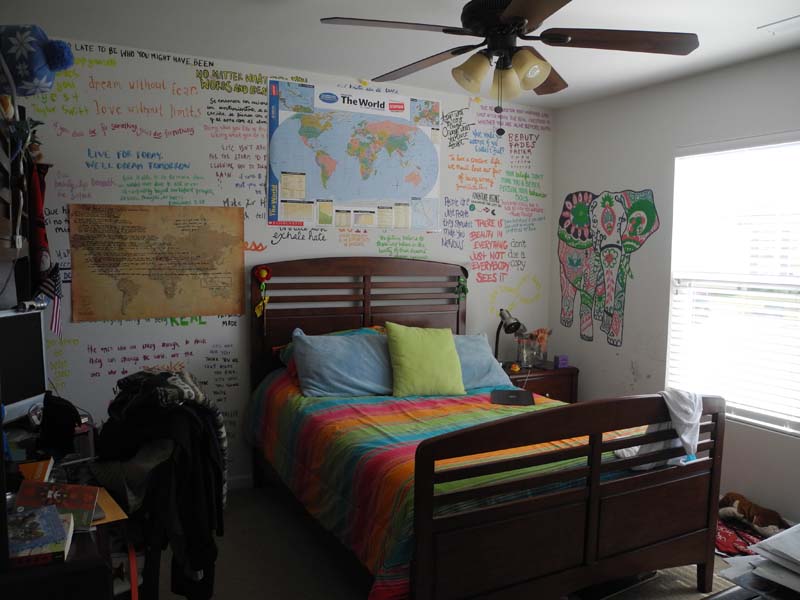
by Gabriela Aleman
In mid-June, I finally touched down in Charlotte, North Carolina, exhausted from the red-eye flight, but surprisingly content. I walked through the familiar airport out to the arrivals line and walked into my mom’s outstretched arms. We squeezed each other tightly and then she held me out at arms-length, tucking a strand of loose hair behind my ear, and looked at me with watery eyes.
“I missed you!” She said, her voice thick with emotion. I laughed with relief and hugged her again.
“I missed you too, mom.”
And I had; I’d missed her more than I’d realized. As we drove back to our house, familiar landmarks popped out to me left and right. I felt safe, for some reason. My mother and I chatted simply until finally pulling into our garage. I ran into the house and scampered up the stairs, counter-balancing my heavy backpack, until I burst into my room at the end of the hall.
Nothing had changed (not that had I expected it to). I placed my heavy load on the bed and took in my surroundings: the bright and colorful quote wall, the dusty stuffed animals perched on top of my library, the pile of books overflowing on the desk in the same pile I’d left behind. I frowned and glanced behind me at the mirror above my dresser which still had my “Pre-departure To Do List” written on it with expo marker. And then I focused on myself, with this room reflected behind me, and it all felt… outgrown.

Over the next few days, the feeling lingered as I realized I still knew where all my possessions were; I knew how to navigate the roads around my house; neighbors greeted me as if I’d never left; and friends interacted as if we were still in high school. They weren’t specifically things that I expected to change, but… It made it feel as if the past ten months of my life had been a figment of my imagination.
It was a perplexing feeling, as I failed to mold my changed self to an old lifestyle.
And here’s the thing. I know the stereotype, and I see the skepticism in people’s eyes when I tell them a year abroad changed me so much. How can 18 years of life lived a certain way be uprooted by one year lived differently? It goes beyond the experiences, the immersion in cultures, the volunteering. While growing up, we are bombarded by influences from every aspect of life: from pop culture, religion, family, friends, and school, to name a few. We grow up with a certain perspective about how life should be lived and very few people question it. There’s nothing wrong with that, but the reason why I tell people that I’ve changed significantly, even if they can’t see it right off the bat, is that my gap year forced me to do one very important thing: think for myself.
The influences of my past 18 years had been stripped away. I threw myself into the world, alone, and was forced to make my own decisions. This was my biggest catalyst for change. I started to question things I grew up believing, things I had been taught, not because I didn’t think they were valuable, but because I didn’t know if I really believed them, or if I had been forced to believe them. I’m sure people my age experience something similar in college, but in my case, it felt more potent.
So now I’m back, really back, in this old lifestyle, and I’m living it for the time being. I was lucky to get an internship at a great company for the summer where I could make some cash before starting at UNC in August, but even in that I see that I’ve changed. A year ago I would have been thrilled to be working where I am; now, I’m grateful, but I acknowledge it’s not a long term situation. Sure, it’ll look great on my resume, as people have told me countless times and I am happy for the experience, but it’s not something I’m interested in. And I’m done doing things that might look good to others. With this, I await UNC with anticipation: it marks a new adventure and a new environment, one where I can build the person I have become and make my gap year a reality, not just something I happened to do and left behind.

